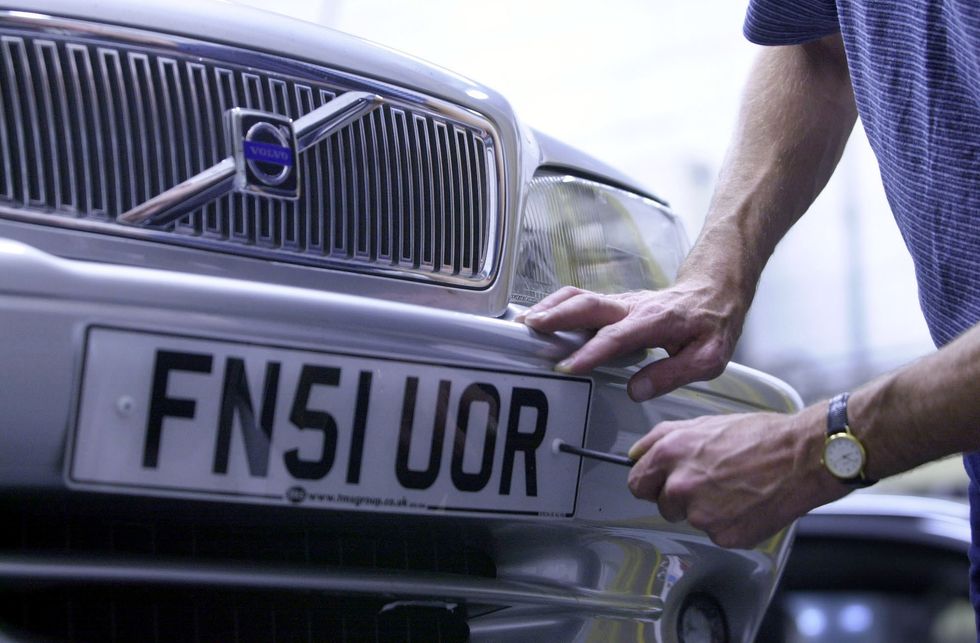Drivers warned of new number plate changes this week that could see the value of their car plummet

Car values on average only retain 70 per cent of their value in the first year
Don't Miss
Most Read
As the new “24” licence plates begin rolling out across the country in March, experts have warned drivers to check that the new changes don’t devalue their cars.
Research has shown how car values on average only retain 70 per cent of their value in the first year, with the car slowly depreciating after this point.
The new “24” plate will be launched on March 1, while “74” plates will be seen on vehicles from September 1 later this year.
Richard Evans, head of technical services at webuyanycar, explained how demand, availability, and the release of new number plates can all cause a car’s value to fluctuate in the market.
Do you have a story you'd like to share? Get in touch by emailing motoring@gbnews.uk

Almost a quarter of drivers believe that new registration plates make second-hand cars more in demand
|GETTY
Research by the car dealer showed how almost a quarter (23 per cent) of drivers believe that new registration plates cause an increase in demand for second-hand vehicles.
Vehicles with older licence plates and higher mileage numbers become harder to sell due to their increased likelihood of suffering mechanical failures, like worn-out components.
Evans said: “While demand is a key factor in determining a car’s value, the newer a car is, the higher value it initially has so another year of a car’s lifespan could affect a vehicle’s price.
“There are a few ways drivers who are thinking of selling their vehicle can retain as much value as possible.”
Car valuations drop massively depending on the mileage, with data showing how almost 50 per cent of motorists try to sell their car before it surpasses 60,000 miles to avoid it losing value in the long term.
Evans remarked how regularly using a car for shorter journeys can bump up the mileage, so travelling on foot can help to keep it down, where possible.
He added: “Keeping the car in a good working condition by having it serviced on a regular basis will also help to ensure the next owner has full confidence and an insight into any previous work or repairs the vehicle has had.”
The mileage of a car is calculated as the total amount of ground covered since the vehicle was first produced.
The Department for Transport has estimated drivers cover between 5,000 and 7,000 miles per year with 10,000 miles per year also considered a “normal mileage”.
As the new licence plates are released, ensuring they are correctly placed on vehicles can prevent drivers from risking fines.
Drivers can face a penalty of up to £1,000 and their vehicle failing its MOT test if the registration plates are not correctly shown.
The DVLA had previously warned drivers to not rearrange letters or numbers, or alter them so that they’re hard to read, they must be in the correct registered order.LATEST DEVELOPMENTS:- Drivers being 'overwhelmed' by bright headlights with urgent demands for law changes to protect motorists
- Electric car drivers pay 20 times more to charge in public despite 'significant savings' with home charging
- Driving law changes urgently needed to make mobile phone use as 'socially unacceptable as drink-driving'

Regularly using a car for shorter journeys may decrease its value
|PA
Darryl Bowman from Cuvva, remarked: “When it comes to number plate changes, there's always a rush for people to get their hands on the latest plate.
“But there are opportunities to score deals on slightly older cars with the older plates. If you're contemplating selling your car, doing so before the new plates are released could net you a higher price.”











